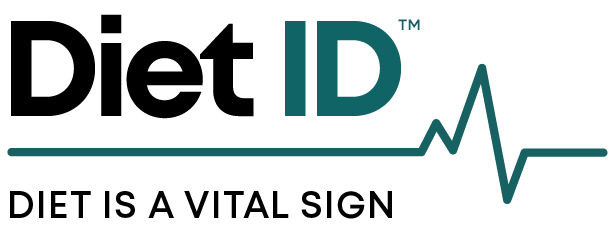Incorporating effective nutrition strategies in underserved communities has traditionally been very challenging, because so many environmental, personal, financial, and cultural factors affect how and what people eat. Helping them improve lifestyle habits may feel insurmountable for dedicated caregivers such as social workers, doctors, nurses, nutritionists, and therapists that help this population.
Most digital health solutions are not appropriate for this audience for multiple reasons (accessibility, cost, availability, and more); they are better suited for those with means looking to fine-tune their nutrition. This is especially discouraging given that diet-related disease risk is highest for those at the greatest financial disadvantage. Diet ID is on a mission to address this issue at scale.
Medicaid, a US government program that provides free or discounted healthcare coverage for low-income individuals and families, allocates monies from both federal and state budgets. Eligibility criteria are similar; they are income-driven and differ per state depending on the poverty line definition. Nutrition is a major determinant of health outcomes, and as such is a significant component of Medicaid services.
For example, Registered Dietitian Nutritionists can get reimbursed directly for Medical Nutrition Therapy (MNT) services provided to Medicaid recipients. While specific coverage varies from state to state, all states do cover dietary counseling for adults at higher risk for chronic disease. In addition, Medicaid covers obesity screening and counseling for all age groups.
For this use case, Diet ID’s Real-time Dietary Assessment Module can be used as the dietary assessment tool as part of MNT services and for obesity screening. Our Daily Actions Module can be used as a part of obesity counseling. Using these tools enhances the nutrition services experience for both provider and recipient, as Diet ID is flexible, quick, easy to use, and can be used virtually and/or in an office/clinic setting.
Individual state Medicaid benefits may also include coverage for the National Diabetes Prevention Program (DPP), which focuses on people with prediabetes. Diet ID is already deployed in DPPs, which is exciting because preliminary data has shown that other populations using the tool increase diet quality and reduce BMI, major outcomes goals for the National DPP. In fact, the CDC has developed a cooperative agreement with health departments in all 50 states and the District of Columbia to strengthen chronic disease prevention and management efforts through the implementation of evidence-based strategies, including the National DPP.
Diet ID is also a part of public health programs that serve Medicaid recipients. One of its newer partners, a digital platform that provides those in need with access to fresh, healthy food, is integrated with Diet ID as part of an effort to collect data on participant diet quality, BMI, and other metrics in order to improve the efficacy and ensure overall success of the program. In its first four months, over 10,000 people have taken the assessment and received free boxes of produce. Over time, the data collected will measure the impact that enhanced access to healthy, locally sourced food has on diet quality and long-term health.
Medical practices serving Medicaid populations have also seen great results with Diet ID. For example, ConferMed, a national telehealth platform, utilizes the Real-time Dietary Assessment Module with registered dietitians as part of its comprehensive telehealth solution. Over the past year, the partnership has boosted patient engagement in nutrition and been a successful component of Medicare reimbursement.
If you’re interested in exploring ways Diet ID can enhance delivery of nutrition and/or medical care to Medicare recipients, please visit this page to get started!



